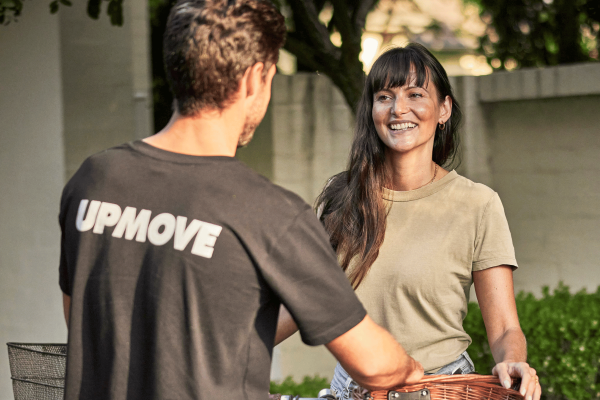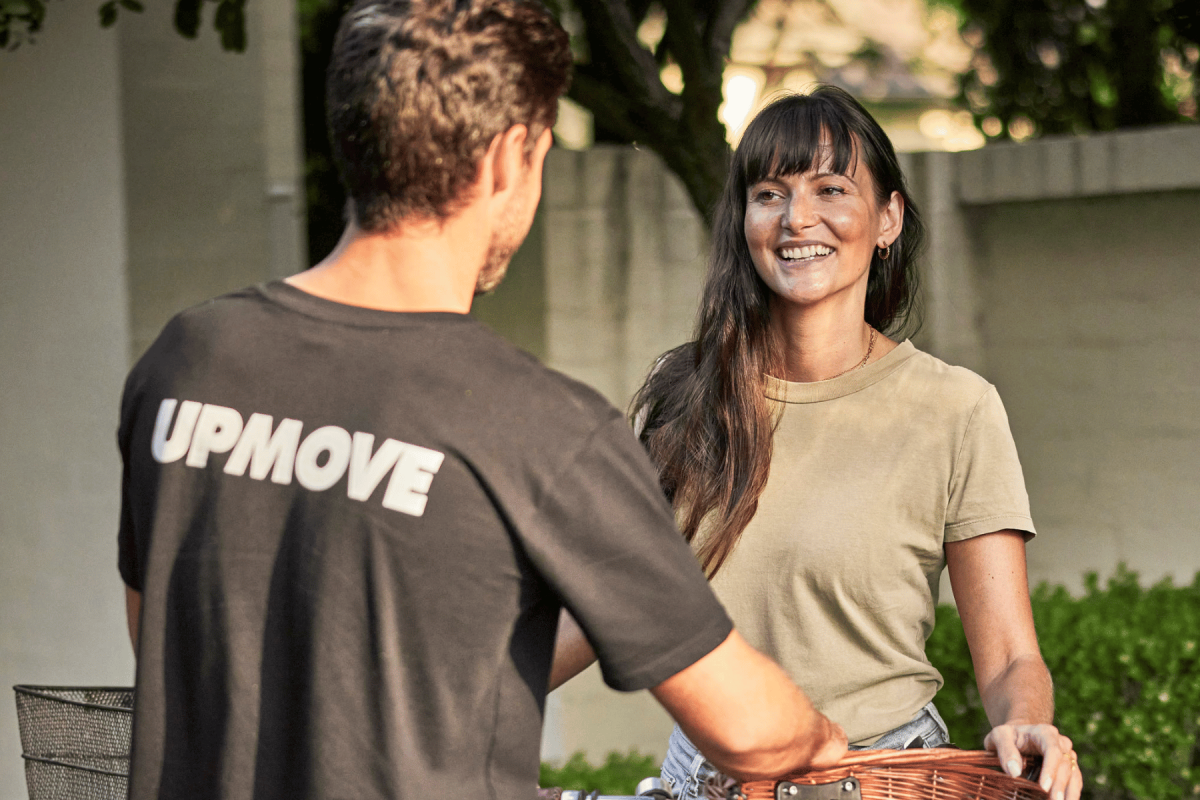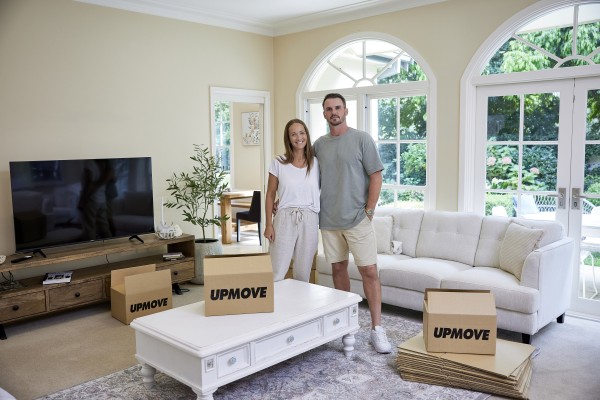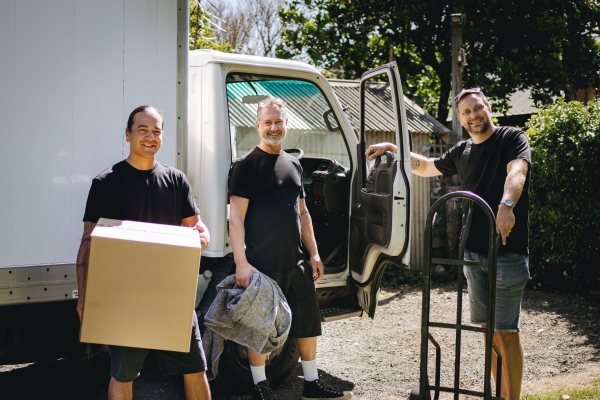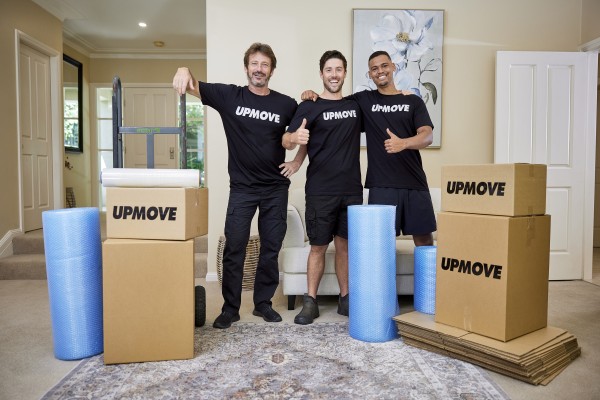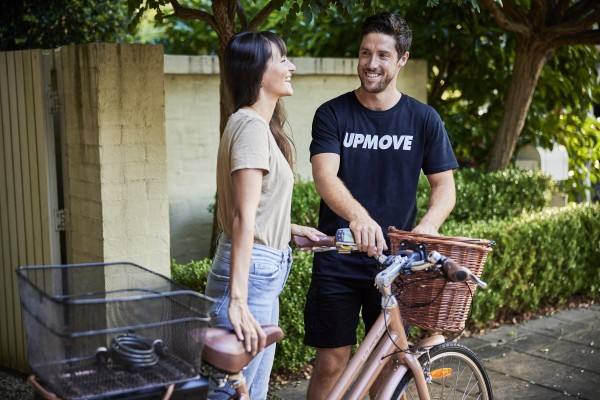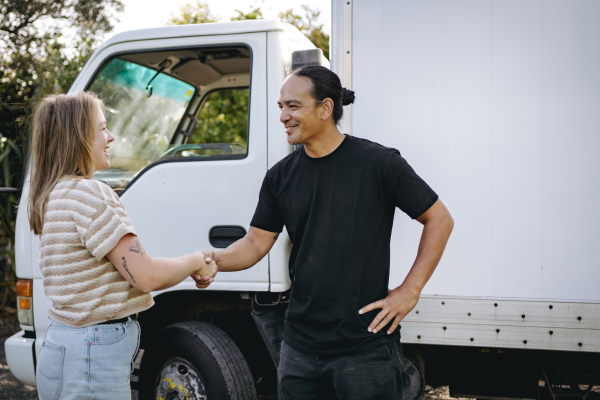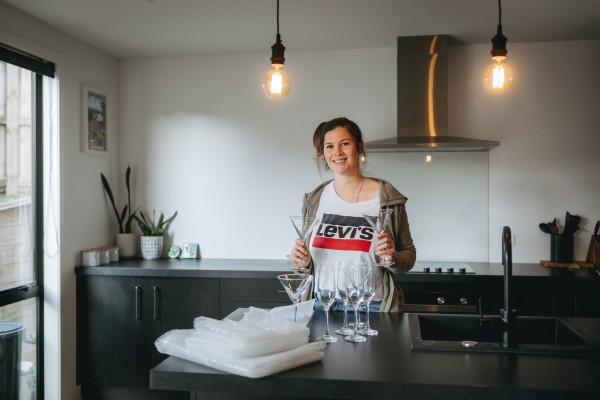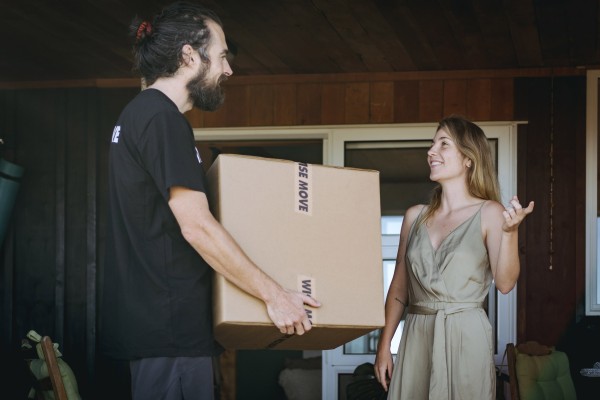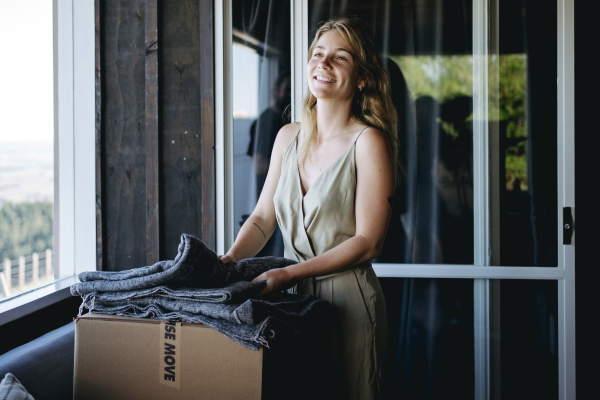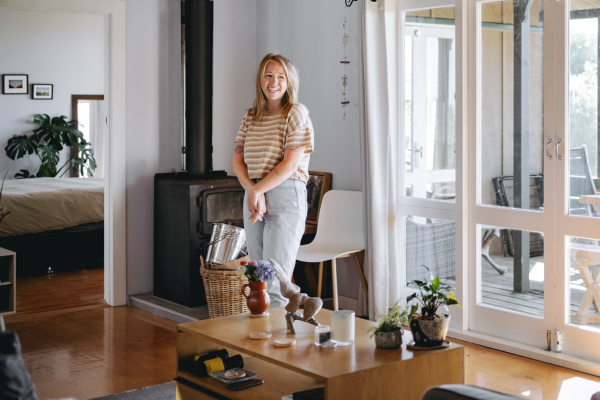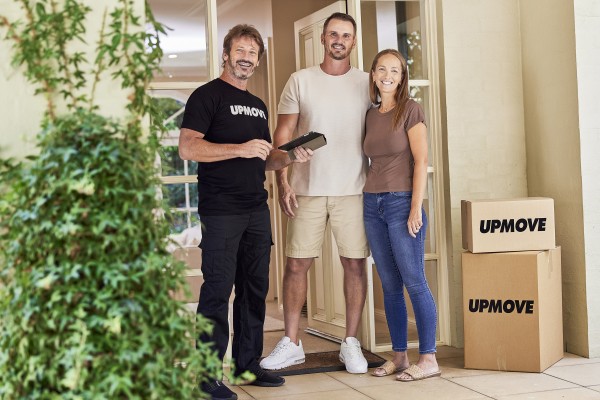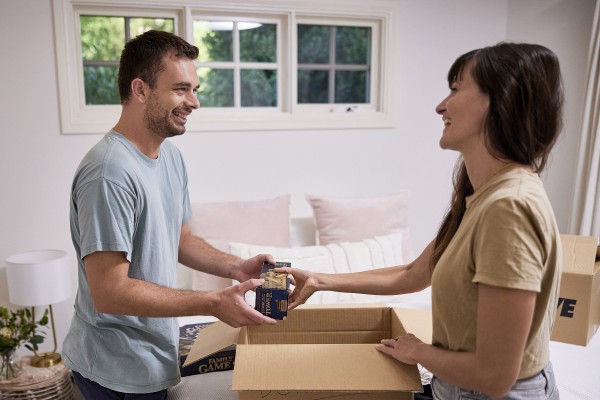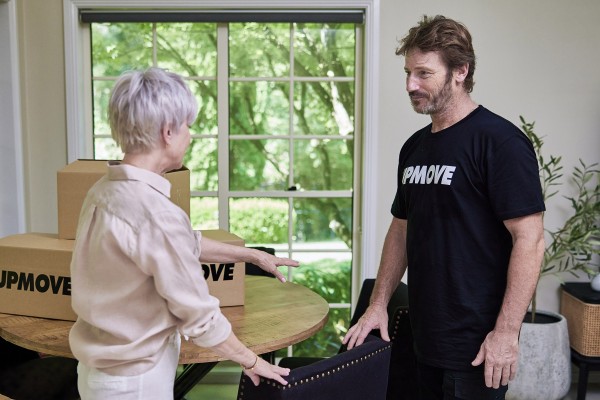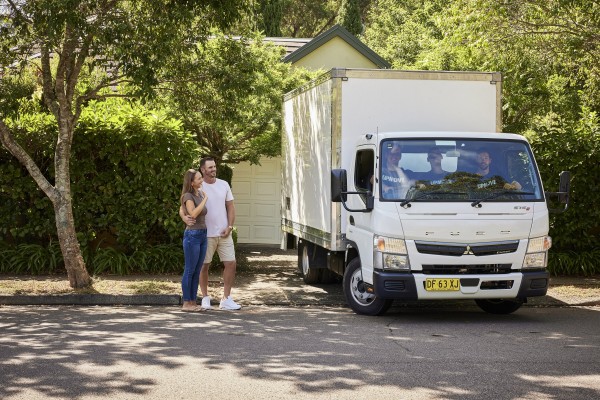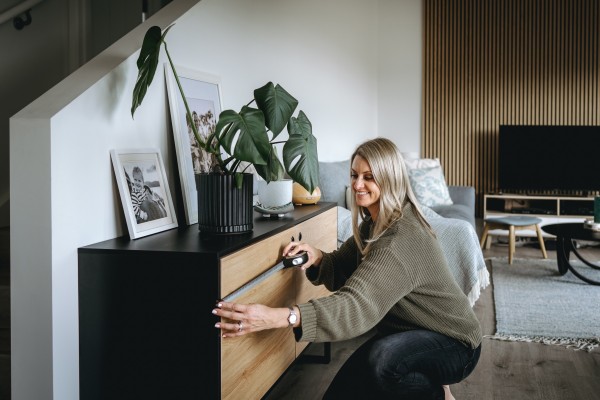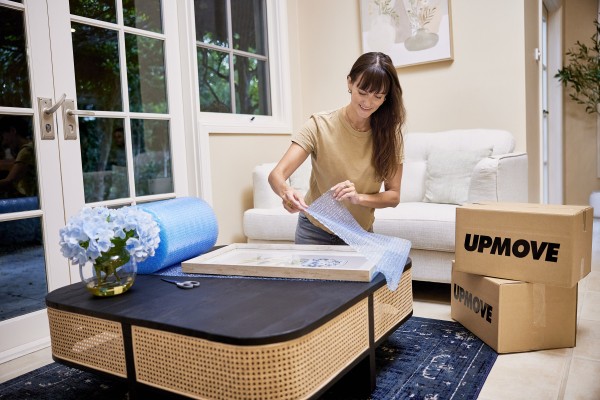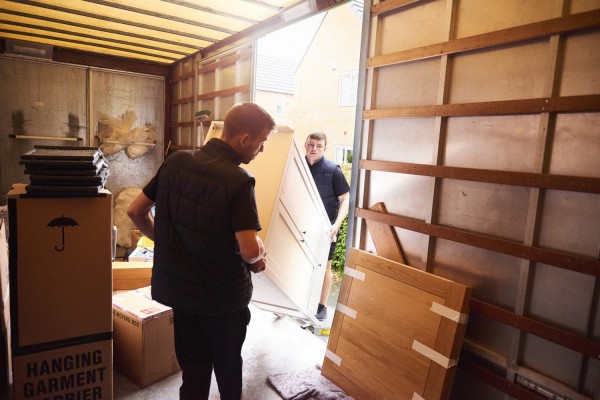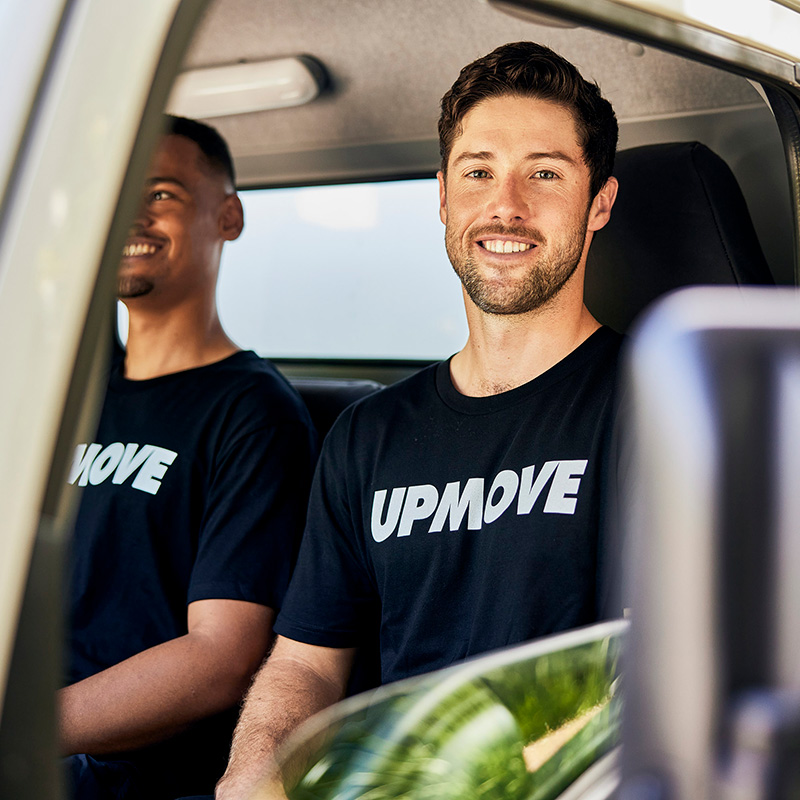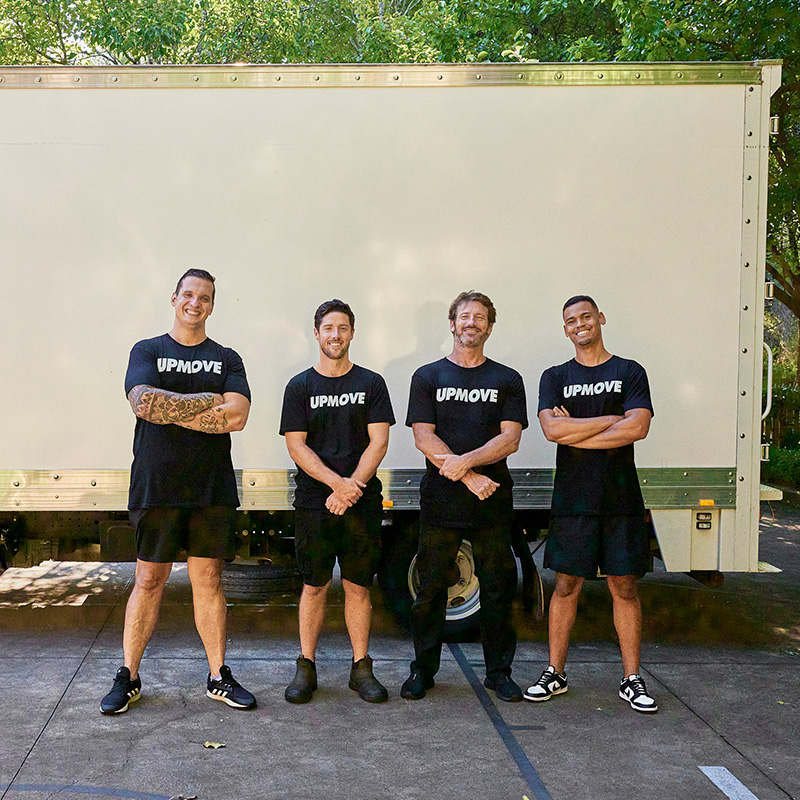Moving out of home for the first time | Step-by-step guide
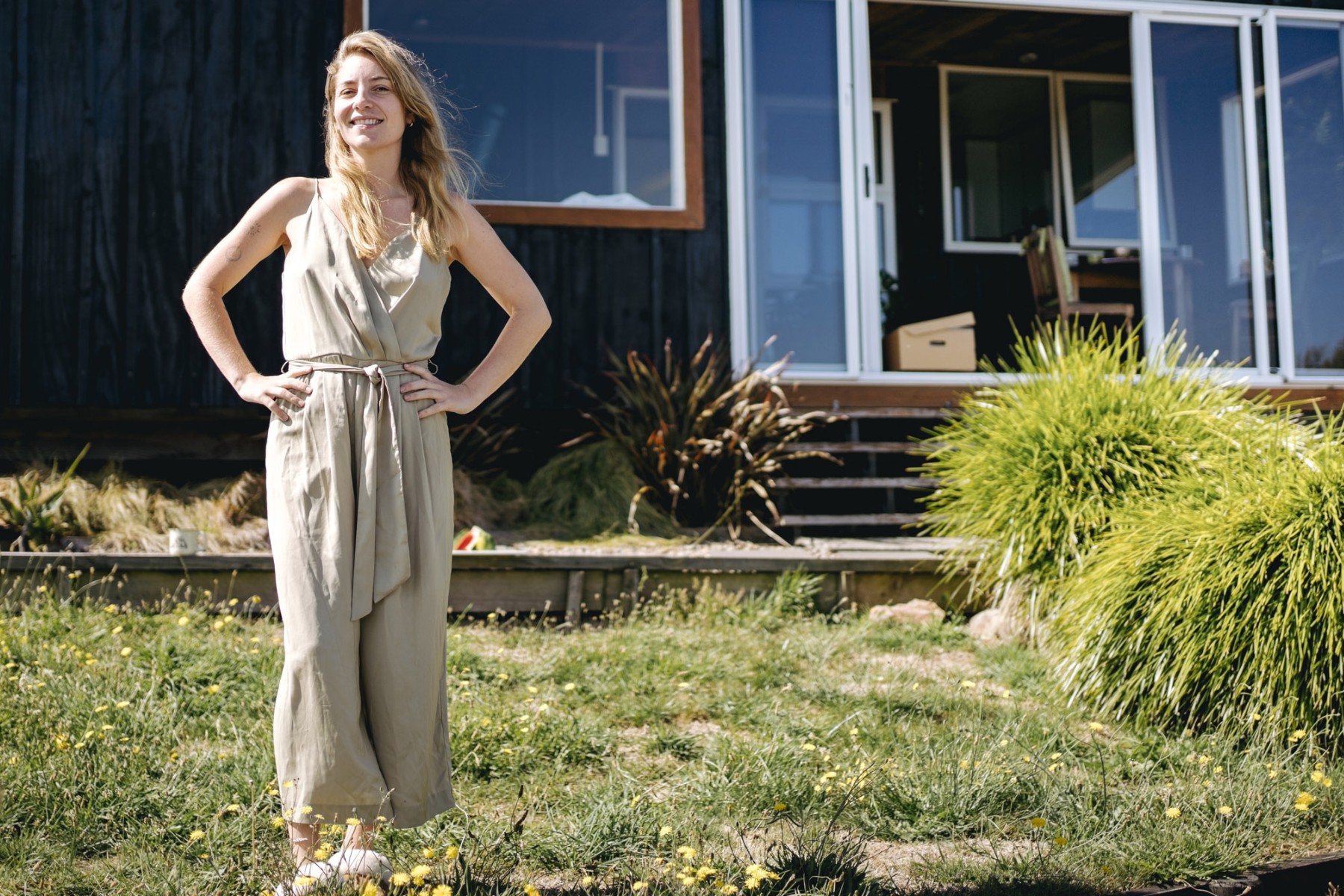
Moving out of your family home for the first time is definitely exciting, but let’s face it, it can also be a little overwhelming. How much money do you really need? What should you pack (and what should you definitely leave behind)? And what’s the deal with housemates vs renting solo?
Whether you're moving into your own place or sharing with others, this guide is packed with all the essentials, tips for success, and a few things you might not have thought of.
Contents
Where to start when you're preparing to move out
Up until now, you’ve probably been enjoying the perks of living at home—laundry done for you, meals cooked, and no bills to pay. But now you're ready to move out of home, it’s time to face the reality of moving out. The good news is—there's a way to get around it being overwhelming. Start by making a list of what needs to be done, and break it into manageable chunks. Take your time and tackle one thing at a time. The earlier you start, the less rushed it will feel, and you’ll feel way more organised by moving day.
Updating your address and personal details
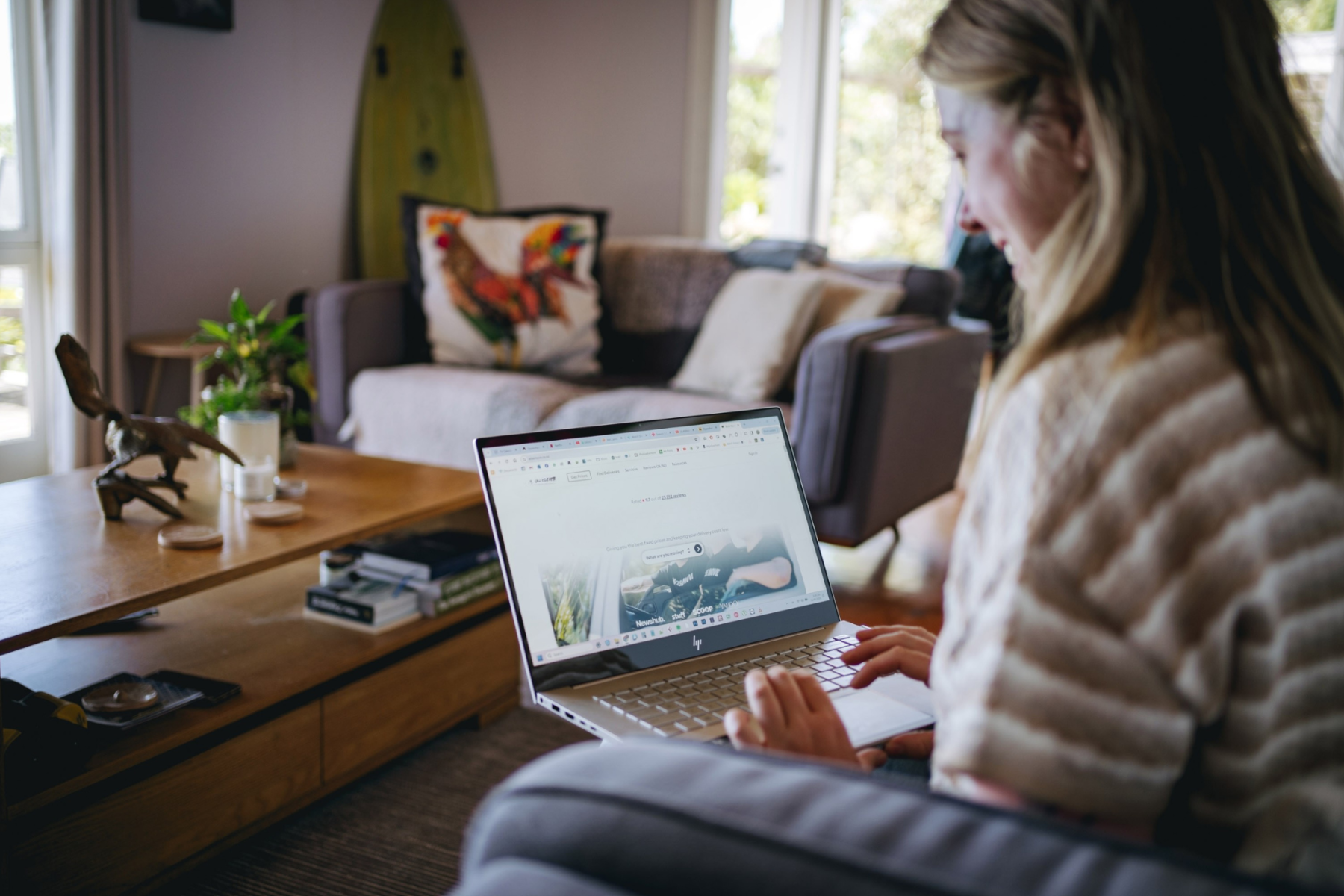
Don’t underestimate the power of sorting out your personal details when you move—it’s one of those small but mighty tasks that can save you a heap of stress later. No one wants their bank statements, online shopping hauls, or grandma’s birthday card turning up at their old address. So, make sure you update your details with the ATO, Medicare, Centrelink, your bank, your driver’s licence and car rego, your super fund, insurance providers and any other relevant service. Future you will be grateful.
Here’s a checklist to get you started but be sure to add on any of your own personal memberships, subscriptions or contacts that may not be included here.
Government and legal
- Australian Taxation Office (ATO)
- Medicare
- Centrelink / MyGov
- Electoral roll (via AEC)
- Driver’s licence and vehicle registration (via your state or territory transport authority)
- Passport (if needed)
- Local council (rates, bins, pet registration)
- Australian Business Register (if you have an ABN)
Financial
- Your bank(s)
- Credit card providers
- Buy now, pay later services (Afterpay, Zip etc.)
- Superannuation fund
- Insurance providers (home, contents, car, health, pet)
- Accountant or financial advisor
Utilities and services
- Electricity, gas and water providers
- Internet and phone providers
- Streaming services (Netflix, Stan, Spotify etc.)
- Mobile provider
- Australia Post (mail redirection + update MyPost account)
- Toll accounts (Linkt, EastLink etc.)
Employment and education
- Employer/ payroll/ HR
- University, TAFE or other education provider
- Professional associations or unions
- Alumni networks
Health and wellbeing
- GP, dentist, physio, psychologist
- Local pharmacy
- Private health insurer
- Gym or fitness memberships
- Optometrist
Shopping and subscriptions
- Online shopping accounts (eBay, Amazon etc.)
- Meal delivery services (HelloFresh, Marley Spoon)
- Subscription boxes (wine, books, razors etc.)
- Loyalty programs (Everyday Rewards, Flybuys etc.)
Lifestyle and misc
- Vet and pet microchip registry
- Clubs, societies or hobby memberships
- Library
- Car sharing services (GoGet, Uber etc.)
- Travel rewards programs (Qantas Frequent Flyer, Velocity etc.)
Packing for your move
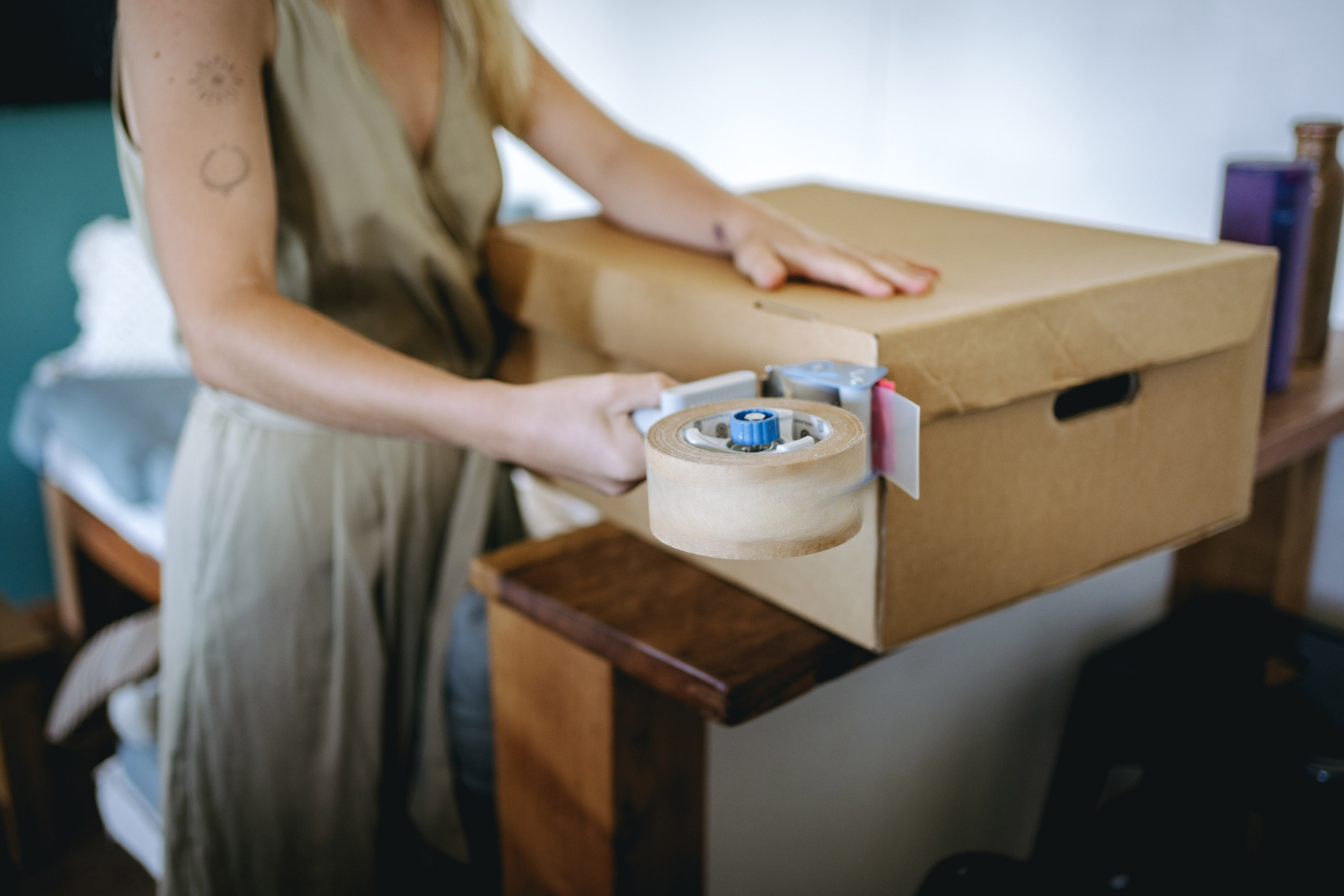
Packing for your first move is equal parts exciting and total chaos—but a bit of planning can make it way less stressful. Start by being realistic about how much space you actually have at your new place.
If you're moving into a sharehouse or a tiny studio, chances are you won’t have room for your entire life in boxes. Take the essentials, leave the "maybe one day" stuff at Mum and Dad’s (their garage was made for this, right?).
If you're moving to study or into a place with housemates, remember it’s probably not your forever home—so no need to bring everything you own. Have a chat with your new roomies first to see what's already there. There's no need for five can openers, three toasters and seven chopping boards fighting for drawer space.
And keep in mind, anything you leave in a shared area is basically fair game—so maybe leave your favourite mug or fancy olive oil in your own cupboard. When it comes to packing, label your boxes clearly (yes, even if you swear you’ll remember what’s in them), and try to pack by room or purpose.
A lifesaver tip: pack a small essentials box or bag with the things you’ll need on your first day—like a change of clothes, toiletries, phone charger, and maybe a snack or two—so you’re not digging through six boxes just to find your toothbrush.
Use our guide for a smooth and easy packing process.
Booking your removalists
If the entirety of your worldly possessions fits into one or two small boxes, you might be able to get away with just borrowing a mate’s car (or roping in your parents’ SUV). But if you’ve got a decent stack of boxes, some furniture, or anything that requires two people and a trolley, booking a removalist is a total game-changer. Professional movers handle all the heavy lifting—literally.
They can pack, move and even place your boxes and furniture in the right rooms at your new place, saving your back and your sanity. Plus, you can rest easy knowing your stuff is being properly protected in transit—unlike when it’s squeezed precariously into the back seat or roof of your Toyota Camry, with a rogue mirror rattling the whole way. If you do decide to book removalists, it’s worth comparing quotes and service inclusions.
Platforms like Upmove make that super easy by helping you find affordable, trusted movers in your area—so you can spend less time stressing and more time planning how to decorate your new space.
Your new home - core service set-up
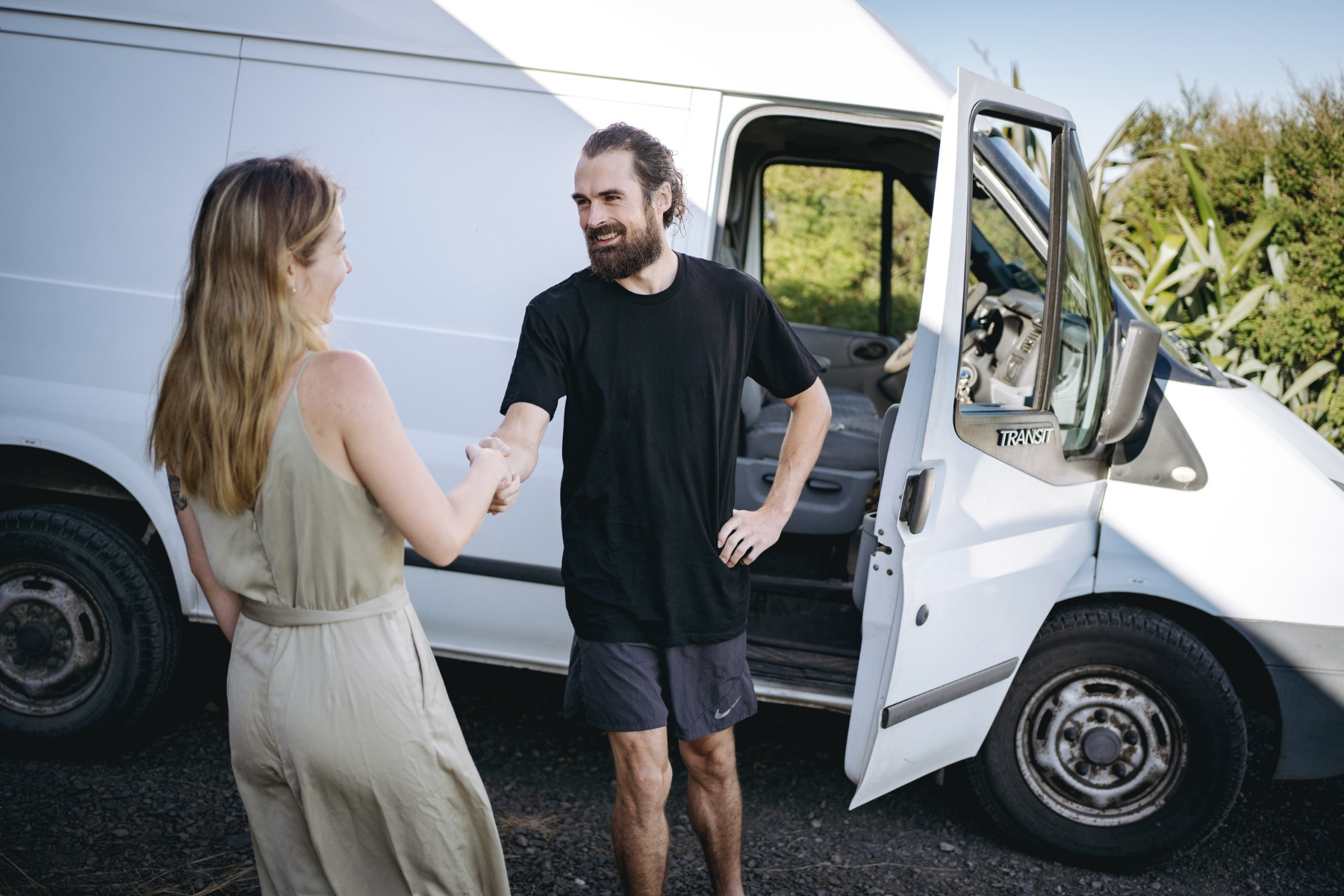
Setting up the core services in your new place is one of those jobs that can be easy to forget in the chaos of moving—but trust us, sorting it all out before move-in day makes everything feel a whole lot lighter. Nobody wants to spend their first night in a new place with no power, water worries or zero Wi-Fi. Here are the key things to get sorted:
Utilities
If you're moving into a rental where utilities are included—lucky you. That’s one less thing on your list. But make sure it’s crystal clear in your lease who’s responsible for setting them up or keeping them connected. If they aren’t included, it’s on you to organise your energy accounts before moving in. That way, your lights and hot water will be good to go when you arrive, and you won’t be left rummaging around in the dark while unpacking.
Water
Water bills can be a bit of a mixed bag in rentals. In some states, tenants only pay for water usage, while landlords cover service fees. In other areas, it’s all included in the rent, or the landlord handles the bill and you reimburse them. Check your lease or chat with your property manager to confirm what’s expected of you—every state and territory has slightly different rules, so best to get across it early.
Internet
We all know internet is basically a non-negotiable these days. Depending on your provider and the property, you may need a technician to physically come out and connect your service, especially if there’s no existing NBN setup. And heads up—there can be wait times, so book it as soon as you have your move-in date locked. No one wants to spend their first week in a new place trying to hotspot their entire life from a mobile phone.
Rubbish and recycling collection
Bins and recycling: not glamorous, but very important. In most rentals, the bins should already be provided by the council and left at the property, but it’s worth double-checking. Also, take note of which days are bin day in your area, and whether you need to register for council services (some councils require you to set up an account for green waste or bulk waste pickups).
How much money you really need to move out
If you're trying to figure out how much money you'll actually need to move out—spoiler alert: probably more than you think.
When moving out, it’s recommended to have at least 3 months’ worth of living expenses saved up. This includes rent (typically 4 weeks upfront), bond (usually 4 weeks’ rent), and initial setup costs. Depending on where you’re moving, rent could range from $1,000–$2,500 per month, and bond could be in the same ballpark.
In addition to this, you’ll need money for utilities, moving costs (around $250–$1,000), and setting up any new services. So, a safe estimate is to have around $6,000–$10,000 saved up to cover the first few months. This will ensure you’re comfortable financially when you make the leap.
Moving out essentials
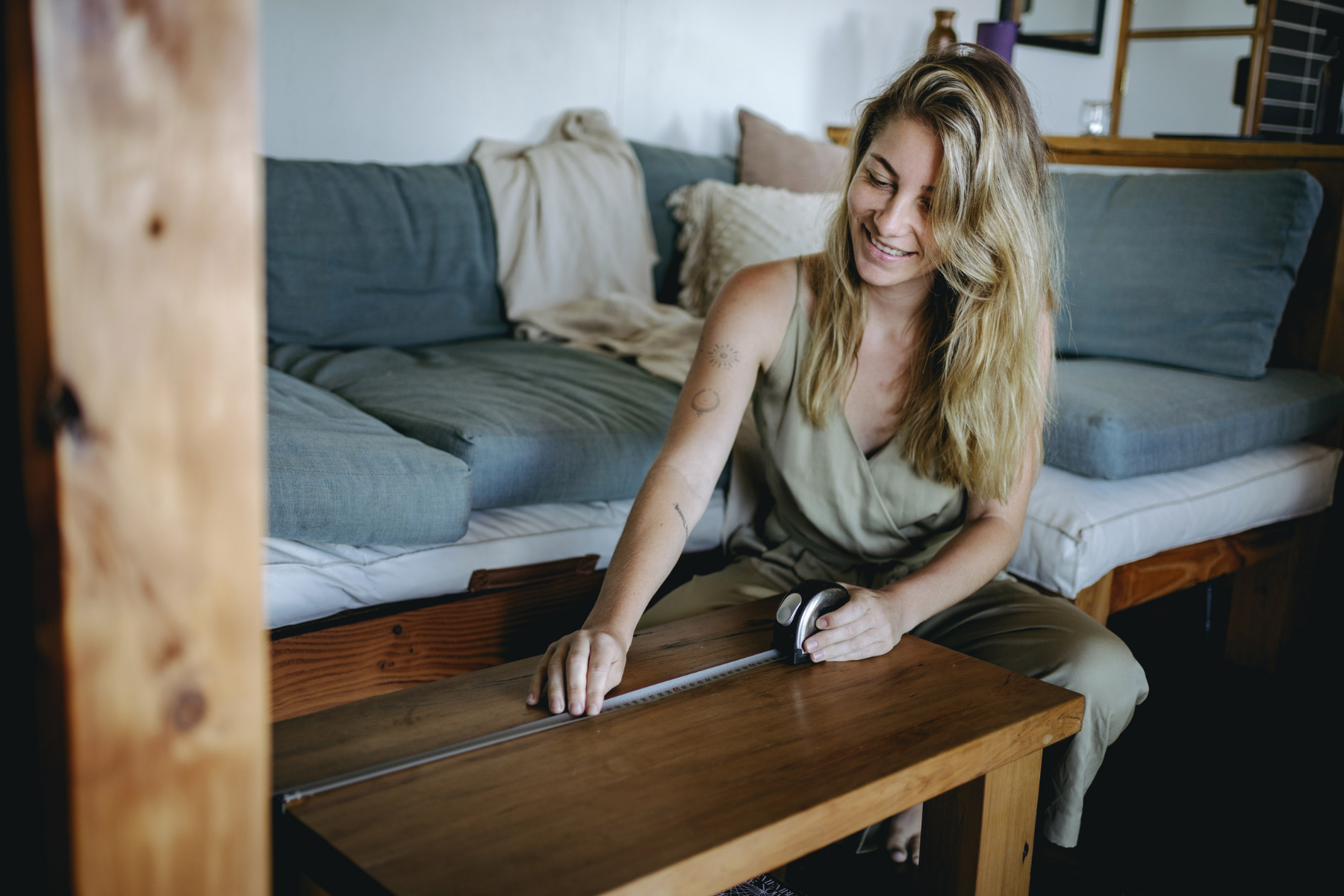
Moving out for the first time means you’ll have to stock up on a few essentials. Up until now, you’ve probably had access to everything you need but now, it’s time to build up your own supplies.
Don’t worry, you don’t need to go overboard at the start—just focus on the basics, and you can gradually add more as you go.
Here’s a list of essentials you’ll need to get started:
Furniture
You don’t need to deck your place out like a fancy furniture showroom on day one, but you will need the basics. Think of this as your starter pack - so you don’t need to spend your days sitting on milk crates.
Essentials:
- Bed frame and mattress (non-negotiable)
- Desk and chair (if you work or study from home)
- Dining table and chairs
- Couch or comfy lounge chair
- Coffee table or side table
- Wardrobe or clothes rack (if your place doesn’t have built-ins)
- Bookshelf or storage shelves
- TV unit or low table
Kitchenware
Unless you’re planning on eating out every night or living off Uber Eats (not exactly in a new move budget), you’ll need a few kitchen basics to get going. Nothing too fancy—just enough to make a meal that involves more than boiling water.
Essentials:
- Frying pan and saucepan
- Baking tray
- Chopping board
- Knives (a decent chef’s knife goes a long way)
- Cutlery (forks, knives, spoons)
- Plates, bowls and mugs
- Drinking glasses
- Mixing bowl
- Measuring cups and spoons
- Cooking utensils (spatula, wooden spoon, tongs)
- Can opener and bottle opener
- Colander or siev
- Food containers for leftovers
- Tea towels
- Oven gloves
- Scissors
- Baking paper, al foil and cling wrap (let’s keep those leftovers covered)
Bedding
A mattress is just the beginning—you’ll want to make it sleep-worthy. And no, one sad pillow and an old towel as a blanket doesn’t count as "done."
Essentials:
- Pillows
- Sheets (at least two sets)
- Doona/duvet and doona cover
- Blanket or throw
- Mattress protector
- Extra pillowcases
Appliances
You don’t need a Thermomix or an air fryer right away (unless you’ve got a soft spot for gadgets), but a few small appliances will make life a whole lot easier.
Essentials:
- Kettle
- Toaster
- Microwave
- Fridge (if your place doesn’t come with one)
- Washing machine (if not provided)
- Vacuum cleaner
- Fan or heater (depending on the season)
Cleaning supplies
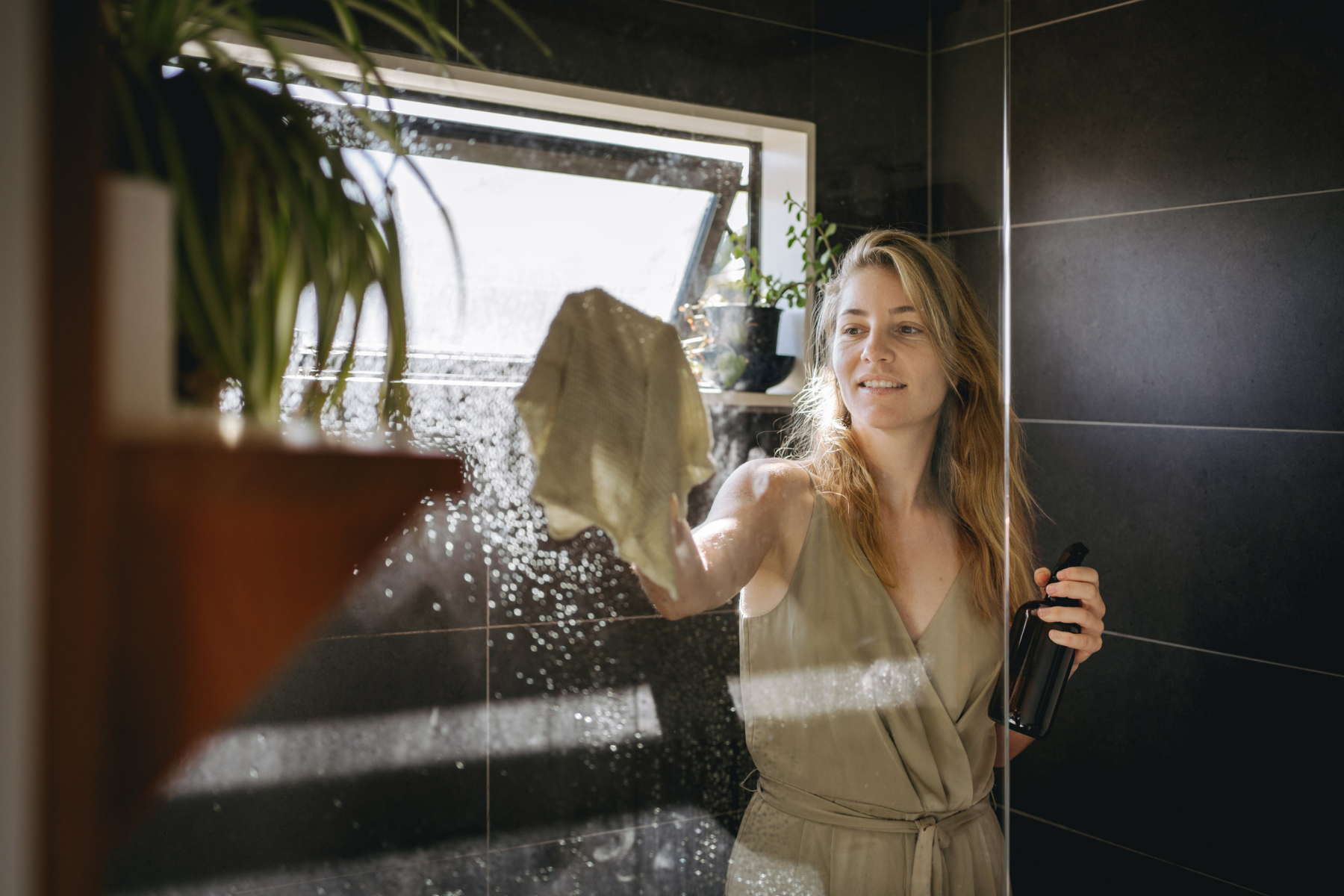
Cleaning might not be the most exciting part of moving out, but a little effort goes a long way. Having a few basics on hand means you can keep your place feeling fresh, tidy and a little more like home.
Essentials:
- All-purpose cleaner
- Dishwashing liquid
- Sponges and scrubbers
- Broom, dustpan and mop
- Bucket
- Vacuum cleaner (if not already mentioned)
- Rubbish bags
- Microfibre cloths
- Laundry detergent
- Toilet brush and cleaner
Bathroom items
Bathroom essentials include much more than just toothpaste and toilet paper—though yes, those are crucial.
Essentials:
- Towels (at least two per person)
- Hand towel
- Face washers
- Shower curtain (if your bathroom needs one)
- Toothbrush and toothpaste
- Toilet paper
- Shampoo, conditioner, body wash
- Hand soap
- Bathroom bin
- Plunger (you'll thank yourself later)
- Personal hygiene and grooming products
Tech bits
We’re talking about all the little (but essential) techy things that make your place actually function. Because what good is a new place if you can't charge your phone or get online?
Essentials:
- Internet router/modem
- Power boards and extension cords
- Chargers for all your devices
- Spare batteries (AA, AAA)
- Light bulbs (check what type your place needs)
- USB drive or external hard drive (for backups)
- Bluetooth speaker or small sound system
Pantry essentials
Unless you’re planning on living on 2-minute noodles for every meal, you’ll need some pantry staples to support your cooking. Obviously, this comes down to taste, but we’ve outlined a few essentials every kitchen cupboard should have.
Essentials:
- Salt and pepper
- Cooking oil (olive or vegetable)
- Sugar
- Tea and coffee
- Pasta and rice
- Tinned tomatoes and beans
- Flour and baking powder
- Soy sauce and basic condiments (tomato sauce, mayo etc.)
- Stock cubes or powder
- Long-life milk or plant-based milk
- Dried herbs and spices (start with the basics like garlic powder, mixed herbs and chilli flakes)
- Peanut butter or spreads of your choice
Garden Care
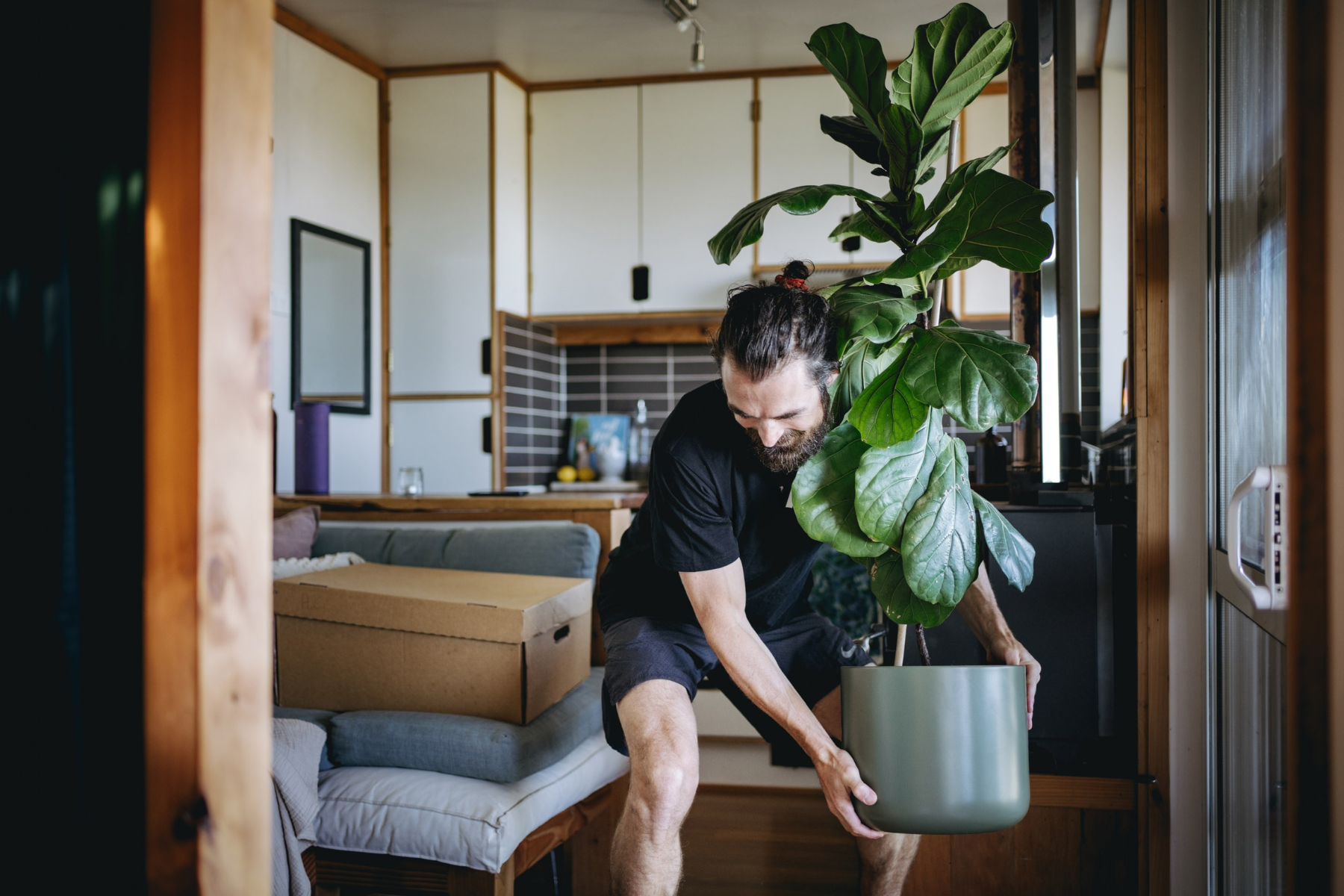
If your new place has a yard, balcony plants or even one sad-looking pot plant, you’ll need to do a bit of upkeep. Welcome to the world of being a plant parent.
Essentials:
- Hose or watering can
- Basic gardening gloves
- Hand trowel
- Plant food/fertiliser
- Pruners or secateurs
- Outdoor broom
- Compost or green waste bin (check your council)
Medical
You don’t need a fully stocked hospital wing, but having a few medical basics on hand can save you a late-night chemist run—or at least make life a bit easier when a headache or random paper cut strikes.
Essentials:
- First aid kit
- Pain relief (paracetamol, ibuprofen)
- Band-aids and antiseptic cream
- Cold and flu tablets
- Thermometer
- Tweezers
- Allergy medication (if needed)
- Heat pack or cold pack
- Any personal prescriptions
- Hand sanitiser
- Rehydration sachets (great for hot days or rough mornings 😉)
Other handy bits
These are the random, often-forgotten items that end up being absolute lifesavers when you actually need them.
- Sewing kit or safety pins
- Torch and candles (with a lighter or box of matches (power outage? No problem)
- Scissors
- Sticky tape, Blu Tack, super glue
- Step stool or small ladder
- Tool kit (basic hammer, screwdrivers, measuring tape)
- Notepad, pens, highlighters
- Command hooks or removable wall mounts
- Umbrella (because… Australian weather right)
- These basics will get you through the first few weeks without stress. You can always add more as you get settled into your new place.
What to look for when finding the right place to live
Finding the right place to live can be both exciting and stressful. You’ll be looking at the rent, sure, but also think about location.
Is it close to work or school? Is there public transport nearby? Do you want to be close to work, your favourite café, or public transport? Maybe you want somewhere quieter, or perhaps you're after that buzzing city vibe.
Take the time to weigh up your priorities. It might be tempting to live in the heart of the city, but it could come with a hefty price tag. Find a spot that’s not only affordable but also fits your lifestyle. A little time spent researching now will make all the difference later.
Pros and cons of renting with housemates vs solo
One of the big choices when moving out of home is whether to live with housemates or rent solo. Renting with housemates can save you money, but it also comes with shared responsibilities—and possibly a few clashes over the dishes. Renting solo means more privacy and control, but it can be more expensive.
Think about your lifestyle—do you enjoy having company, or do you crave your own space? Both options have their perks, so just make sure you choose what feels right for you.
Housemate etiquette when sharing a living space
Living with housemates can be a fantastic experience, but it does come with its own set of rules—both spoken and unspoken.
- First and foremost, communication is key. Always check in with each other about shared responsibilities, whether it’s taking out the bins, cleaning the bathroom, or making sure there’s enough milk for everyone.
- A bit of consideration goes a long way—don’t leave dishes piling up or hog the bathroom for hours on end. And while it’s great to be friendly, respecting each other’s personal space and quiet time is just as important.
- Don’t assume your housemate is up for a late-night Netflix binge or impromptu party just because you’re in the mood.
- When it comes to shared spaces, be mindful that things like food, toiletries, and appliances often become communal.
- Keep things tidy, be aware of what you’re borrowing, and remember that not everything in the fridge is free for the taking (check with them first).
- Set a few house rules early on to help avoid those classic "Who left the sink like this?" moments.
Make your space feel homely without overspending
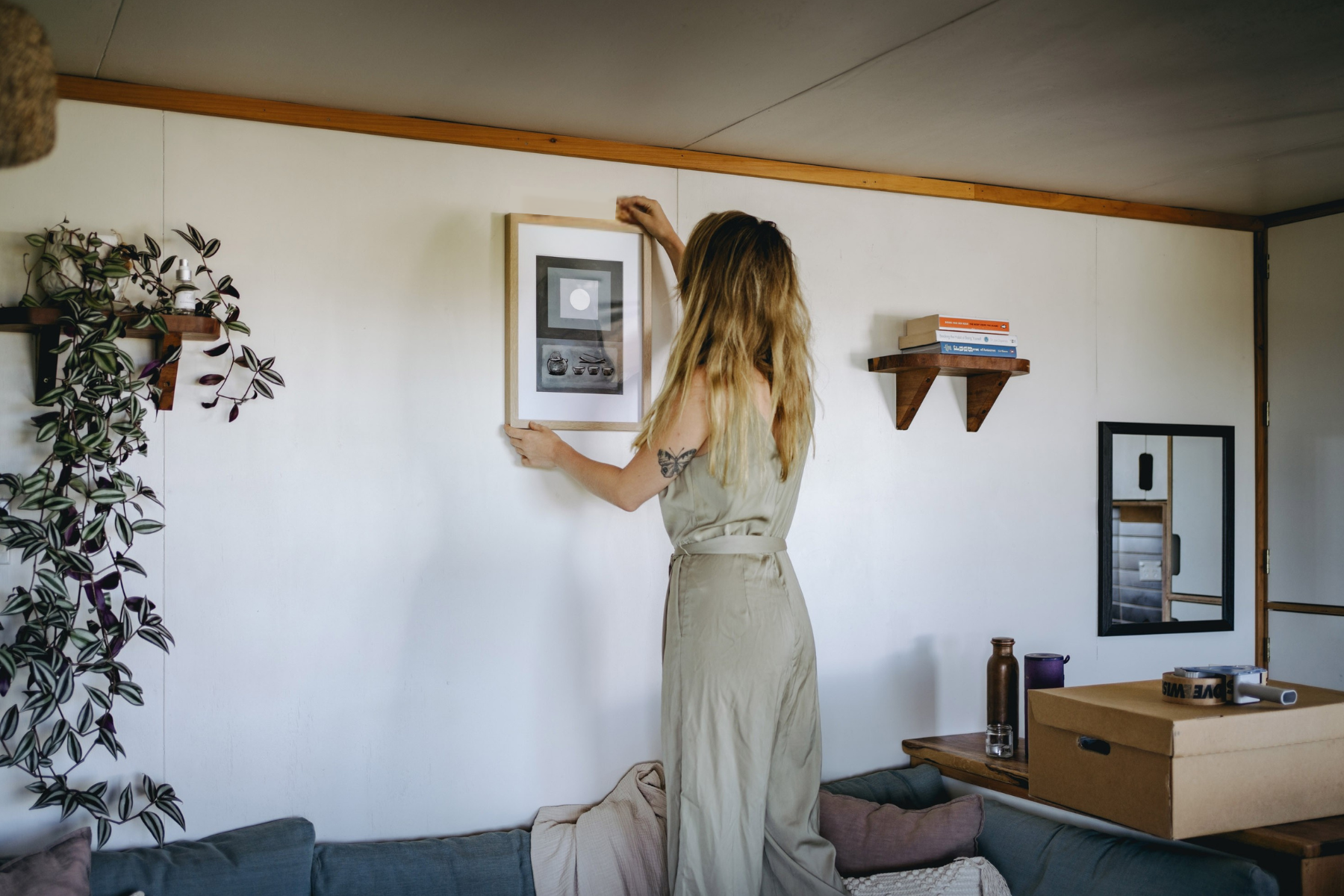
It’s tempting to go all out on décor when you first move in—plush cushions, fancy throws, and statement pieces to make your new place feel like home. But don’t blow your savings on things that are nice to have but not essential.
Light personal touches like photos, plants, or your favourite mug can make your space feel cosy without draining your budget. Focus on what really matters for your comfort and financial security, and add extra touches over time once you’re settled in.
Common mistakes to avoid when moving out of home
1. Underestimating your living costs
Moving out means more than just rent. You’ll need to account for food, transport, insurance, utilities, and smaller costs like cleaning products and toiletries. These can add up quickly, so be sure to factor them into your budget to avoid surprise expenses.
2. Not budgeting for emergencies
Life can throw unexpected curveballs—things like urgent repairs or unplanned bills can easily disrupt your budget. Having an emergency fund, even a small one, can save you from scrambling to cover these costs when they arise.
3. Choosing the wrong location
It’s not just about finding a place that looks nice—it’s also about how practical it is for your day-to-day life. Make sure the location is convenient for work or study and has easy access to public transport. Moving too far from these essentials can increase transport costs and time.
4. Leaving the move to the last minute
Planning is everything. If you wait too long to book movers or sort out logistics, you might find yourself scrambling on moving day. Try to plan ahead, especially if you're moving on a weekend or during peak season when movers are in high demand.
Dealing with the emotional side of moving out
Let’s be honest—moving out for the first time can bring up a lot of emotions. On one hand, you’re excited about your newfound independence and all the new experiences. On the other, it’s normal to feel homesick or a little lonely in the beginning. Don’t worry, this is completely natural.
When you’re struggling, don’t be afraid to reach out to your family and friends by phone or plan visits—it’ll help you feel grounded. Also, take the time to build a sense of community in your new environment. If you’re at school or university, try joining clubs or attending social events to meet new people.
If you’ve just started a new job, connect with colleagues outside of work, or check out local meetups. Even getting involved in your local gym or community groups can help you feel more connected.
It’ll take time, but before you know it, your new place will feel like home, and you’ll have built your own little support network around you.
Moving out of home made easy with Upmove
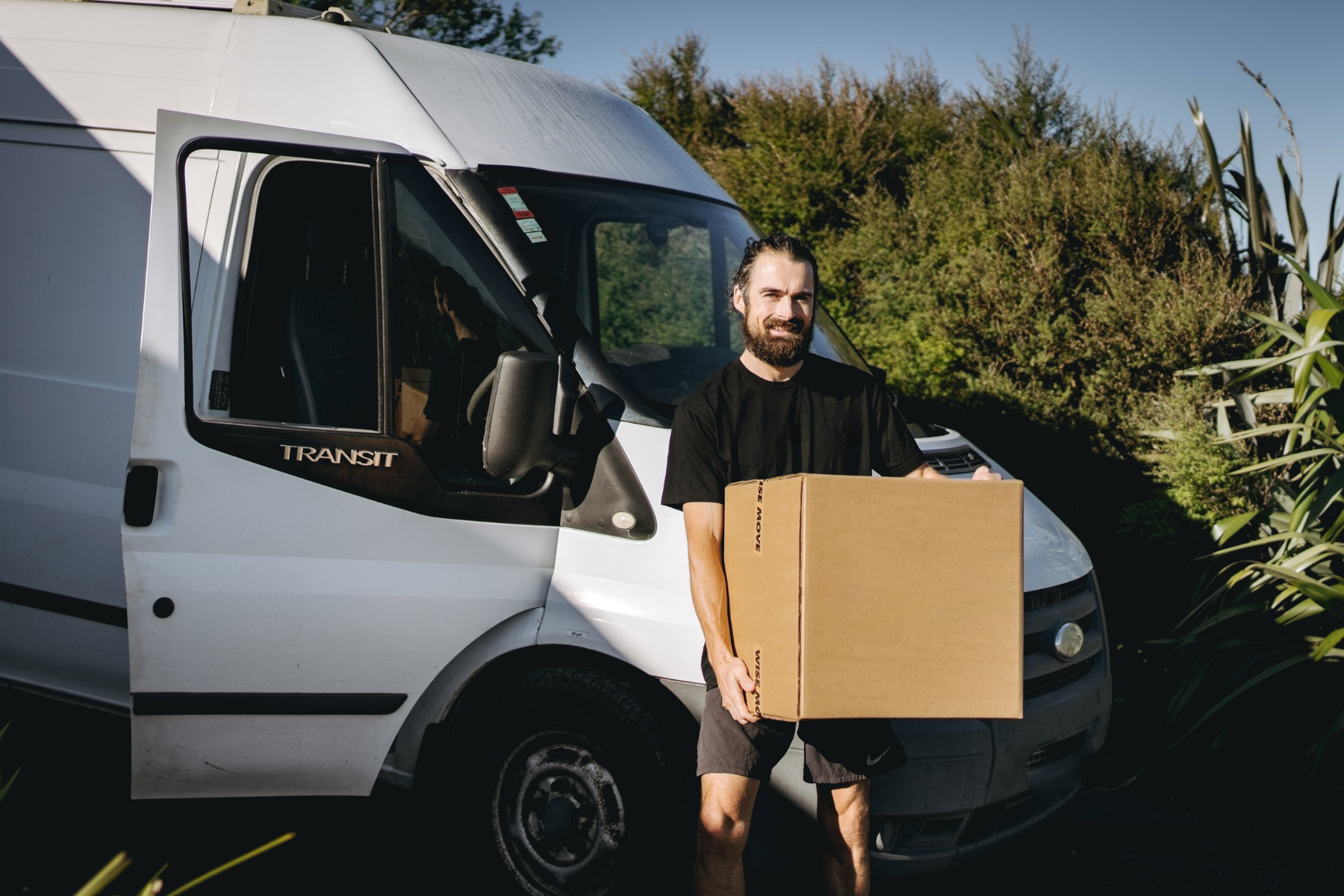
Moving out for the first time is a big step, and while it comes with its challenges, it’s also an exciting new chapter. By planning ahead, budgeting wisely, and making your new space feel like home, you’ll set yourself up for success.
Remember, the first few weeks might feel a bit overwhelming, but with time, everything will fall into place. And if you need a little extra help with the move, you can find and book reliable, affordable removalists to make your transition as smooth as possible with Upmove.
Enjoy your new freedom.
What do our customers say?




